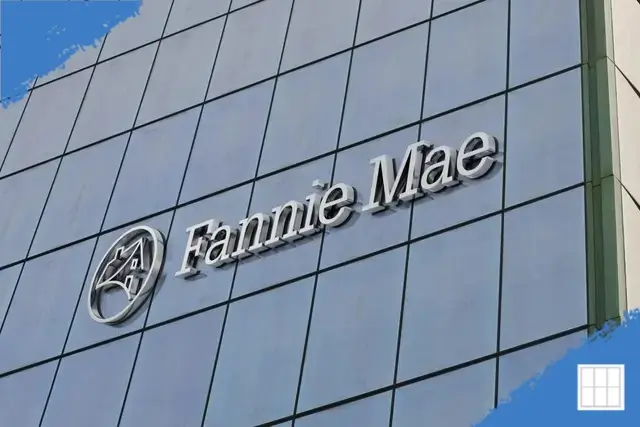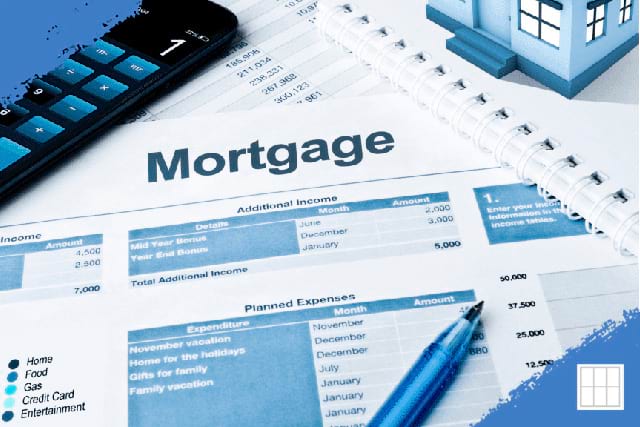A Beginner's Guide to Navigate the Mortgage Process with Ease Buying a house is one…

Fannie Mae Eliminates Minimum Credit Score Requirement
At Metropolitan Mortgages, we’re always at the forefront of industry updates that can make homeownership more accessible for our clients. Today, we’re excited to dive into a significant announcement from Fannie Mae that’s set to reshape the mortgage landscape. Starting November 16, 2025, Fannie Mae will remove the longstanding minimum credit score requirements from its Desktop Underwriter (DU) system.
This means the current 620 minimum representative credit score for single borrowers and the 620 average median score for multiple borrowers will no longer be a hard barrier for new loan casefiles. If you’re dreaming of buying a home but have been held back by credit concerns, this could be the breakthrough you’ve been waiting for. In this comprehensive blog post, we’ll break down what this change entails, why it’s happening, its implications for borrowers, and how Metropolitan Mortgages can guide you through the process.
Understanding Fannie Mae and Desktop Underwriter (DU)
Before we delve into the specifics, let’s set the stage with some background. Fannie Mae, formally known as the Federal National Mortgage Association, is a government-sponsored enterprise that plays a pivotal role in the U.S. housing market. It doesn’t originate loans directly but purchases mortgages from lenders, providing liquidity that enables more affordable home financing options. One of its key tools is Desktop Underwriter (DU), an automated underwriting system that evaluates loan applications based on various risk factors to determine eligibility for Fannie Mae-backed loans.
Historically, DU has enforced a minimum credit score threshold to ensure borrowers meet a baseline level of creditworthiness. For a single borrower, this was a representative credit score of at least 620, derived from the middle score of the three major credit bureaus (or the lower of two if only two are available). For loans with multiple borrowers, an average median credit score of 620 was required. These requirements were designed to mitigate risk, but they also excluded many potential homeowners who might otherwise qualify based on other strong financial indicators, such as stable income, low debt-to-income ratios, or substantial down payments.
The Big Change: Removing the Minimum Credit Score
Effective for all new loan casefiles created on or after November 16, 2025, Fannie Mae is eliminating these minimum credit score requirements entirely. Instead of relying on a rigid score cutoff, DU will conduct a more holistic analysis of the borrower’s credit profile and overall risk factors. This shift allows the system to approve loans where credit scores might fall below 620, provided other elements of the application demonstrate low risk.
But wait – this doesn’t mean credit scores are irrelevant. Far from it. DU will still evaluate credit history comprehensively, including payment history, credit utilization, length of credit history, and recent inquiries. The removal simply lifts the floor, opening the door for borrowers with scores in the 500s or even lower, as long as the overall profile passes DU’s risk assessment. Additionally, related updates include changes to nontraditional credit documentation and homebuyer education requirements. Now, these will trigger based on whether a borrower has at least one reported credit or installment account, rather than score thresholds. For instance, if no such accounts exist, lenders may need to establish a nontraditional credit history or require homebuyer education.
This update was outlined in Fannie Mae’s Selling Guide Announcement SEL-2025-09, released earlier this month, and aligns with ongoing efforts to modernize underwriting processes. It’s part of a broader DU Version 12.0 update, which emphasizes data-driven decisions over arbitrary cutoffs.
Why Is Fannie Mae Making This Change Now?
The timing couldn’t be better, especially in a housing market where affordability remains a challenge for many Americans. Rising home prices, elevated interest rates, and economic uncertainties have made it tougher for first-time buyers and those rebuilding credit to enter the market. By removing the 620 barrier, Fannie Mae aims to expand access to homeownership without compromising on risk management.
Advancements in technology and data analytics have enabled more sophisticated risk modeling. DU can now weigh a multitude of factors more effectively, such as employment stability, cash reserves, and even alternative data sources like rental payment history. This evolution reflects a growing recognition that a single credit score doesn’t tell the whole story. For example, someone with a lower score due to past medical debt might still be a reliable borrower if their current finances are solid.
Industry experts predict this could help underserved populations, including young adults, immigrants, and those recovering from financial setbacks. In areas like urban centers or regions with high living costs, where credit scores might be depressed due to factors beyond control, this change could boost homeownership rates significantly.
Implications for Borrowers and the Mortgage Market
So, what does this mean for you as a potential homebuyer? First and foremost, more flexibility. If your credit score has been hovering below 620, you might now qualify for a Fannie Mae-backed loan that was previously out of reach. This is particularly beneficial for conventional loans, which often offer better terms than FHA loans (which have their own lower score thresholds but come with mortgage insurance premiums).
However, it’s not a free pass. Lenders will still scrutinize your application, and a very low score could lead to higher interest rates or denial if other risks are present. Moreover, this change applies only to new casefiles starting November 16, 2025 – existing applications won’t be retroactively affected. If you’re in the process now, it might be worth waiting a few days to resubmit under the new rules.
On the market side, this could increase demand, potentially driving up home prices in competitive areas. Lenders like Metropolitan Mortgages are gearing up for an influx of applications from previously marginalized borrowers. We’re already updating our systems to align with the new DU protocols, ensuring seamless processing.
For those with no traditional credit history, the updated messaging in DU will guide lenders on next steps, such as verifying rental or utility payments to build a credit profile. This promotes financial inclusion, helping “credit invisible” individuals step onto the property ladder.
Benefits and Potential Drawbacks
The benefits are clear: broader access to affordable mortgages. Borrowers with scores below 620 but strong compensating factors – like a large down payment or excellent job history – can now compete more fairly. This could reduce reliance on subprime loans, which often carry exorbitant rates.
That said, there are caveats. Without the minimum score, some borrowers might overextend themselves, leading to higher default risks if economic conditions worsen. Lenders must remain vigilant, and borrowers should seek professional advice to ensure they’re ready for homeownership responsibilities.
At Metropolitan Mortgages, we see this as an opportunity to educate and empower. Our team of experts can review your credit report, simulate DU outcomes, and suggest ways to strengthen your application – whether through debt reduction, credit repair, or exploring down payment assistance programs.
How Metropolitan Mortgages Can Help You Navigate This Change
As a trusted mortgage provider, Metropolitan Mortgage is committed to making your homebuying journey smooth and successful. With this Fannie Mae update on the horizon, now is the perfect time to connect with us. Our loan officers are well-versed in the nuances of DU and can help you determine if you qualify under the new guidelines.
We offer free credit consultations, personalized mortgage pre-approvals, and a range of loan products tailored to your needs. Whether you’re a first-time buyer, refinancing, or investing, we’ll guide you every step of the way. Visit our website or call us today to schedule a no-obligation chat – let’s turn this policy shift into your homeownership reality.
Final Thoughts: A Step Toward Inclusive Homeownership
Fannie Mae’s decision to eliminate the minimum credit score requirement from DU marks a progressive step in democratizing access to housing finance. Effective November 16, 2025, this change promises to open doors for countless Americans, fostering a more equitable market. While credit remains crucial, the focus on comprehensive risk assessment better reflects real-life financial health.
At Metropolitan Mortgages, we’re thrilled about the possibilities this brings. If you’ve been sidelined by credit score hurdles, don’t hesitate – reach out and let’s explore your options. Homeownership might be closer than you think.



